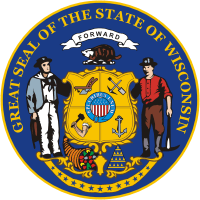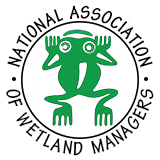Climate Change Adaptation - Wisconsin

Climate Change History
Wisconsin produced a greenhouse gas reduction plan in 2008, authored by the Governor’s Task Force on Global Warming. Wisconsin’s Department of Natural Resources (DNR) maintains a climate change website which highlights activity around greenhouse gas reduction efforts and other mitigation strategies. Impact assessment and adaptation research is underway in partnership with the University of Wisconsin through the Wisconsin Initiative on Climate Change Impacts. Wetland issues are being addressed by several working groups, including Wildlife, Water Resources, and Plant and Natural Communities.
Current & Future Action
The Wisconsin Initiative on Climate Change Impacts (WICCI) maintains a website devoted to public education about climate change impacts and adaptation strategies, and plans to issue its first Adaptive Assessment Report in fall of 2010. The website includes a climate model at the state level and provides maps built on those models. DNR is developing a State Natural Resources Adaptation Plan which will address strategies to preserve and protect coastal and inland wetlands from climate change impacts.
Pilot Programs/Current Studies
Wisconsin hosts a global change research program of the U.S. Geological Survey entitled "Water, Energy, and Biogeochemical Budgets" (WEBB), which emphasizes long-term field investigations of interactions and cycles of water, energy, gases, nutrients, and vegetation. The Trout Lake (TL) WEBB site is in the Northern Highland area of north-central Wisconsin and includes five open lakes and two bog lakes. The following are the long-term objectives of the TL-WEBB project:
- Describe processes controlling water and solute fluxes in the TL watersheds.
- Examine interactions among those processes and their relations to climatic variables.
- Improve the capability to predict changes in water and solute fluxes for a range of spatial and temporal scales.
The Wisconsin Wetland Observatory is long term project to monitor the effects of global warming on water resources of the Northern Highland Lake District in northcentral Wisconsin, and provides continuous monitoring of 2 small wetlands within the context of the North Temperate Lakes Long Term Ecological Research Site.
For More Information
Wisconsin Initiative on Climate Change Impacts homepage: http://www.wicci.wisc.edu/
Governor’s Task Force on Global Warming: http://dnr.wi.gov/environmentprotect/gtfgw/
Wisconsin DNR’s Climate Change web page: http://dnr.wi.gov/climatechange/
USGS Trout Lake WEBB Project: http://wi.water.usgs.gov/webb/
Wisconsin Wetland Observatory homepage: http://www.wetlands.gleon.org/
For more information about climate change issues affecting wetlands, contact Tom Bernthal at (608)266-3033 or Thomas.Bernthal@wisconsin.gov
